This pub is named after the first Lord Burton, Michael Arthur Bass, a member of the famous brewing family, which has its headquarters in Burton.
Photographs and text about Burton’s textile industry.
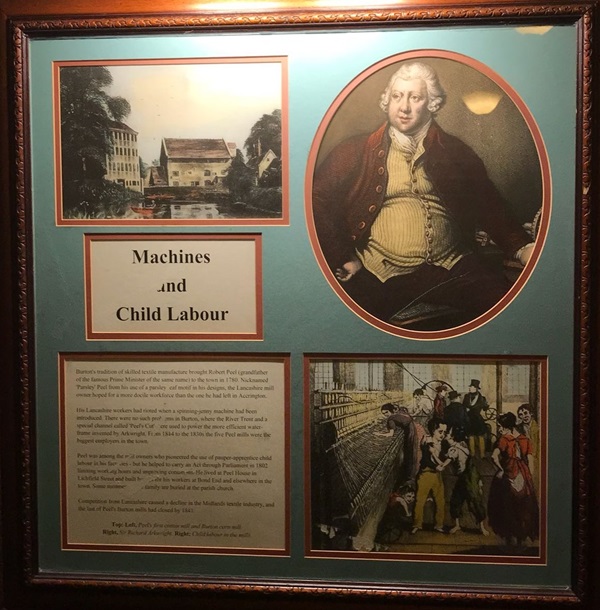
The text reads: Burton’s tradition of skilled textile manufacture brought Robert Peel (grandfather of the famous Prime Minister of the same name) to the town in 1780. Nicknamed ‘Parsley’ Peel from his use of a parsley leaf motif in his designs, the Lancashire mill owner hoped for a more docile work force than the one he had left in Accrington.
His Lancashire workers had rioted when a spinning-jenny machine had been introduced. There were no such problems in Burton, where the River Trent and a special channel called ‘Peel’s Cut’ were used to power the more efficient water-frame invented by Arkwright. From 1814 to the 1830s the five Peel mills were the biggest employers in the town.
Peel was among the mill owners who pioneered the use of pauper-apprentice child labour in his factories – but he helped to carry an Act through Parliament in 1802 limiting working hours and improving conditions. He lived at Peel House in Lichfield Street and built houses for his workers at Bond End and elsewhere in the town. Some members of the family are buried at the parish church.
Competition from Lancashire caused a decline in the Midlands textile industry, and the last of Peel’s Burton mills had closed by 1841.
Top: left, Peel’s first cotton mill and Burton corn mill, right, Sir Richard Arkwright
Right: Child labour in the mills.
A photograph of the War Memorial, 1920.
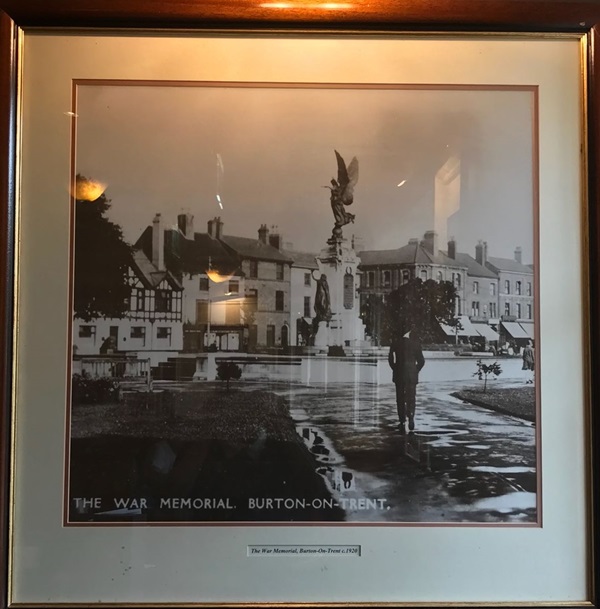
A photograph of the station platform, 1910.
A photograph of Market Place, 1910.
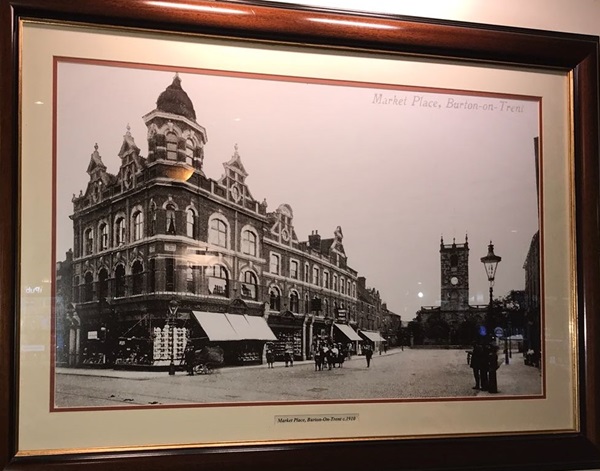
A photograph of High Street, 1910.
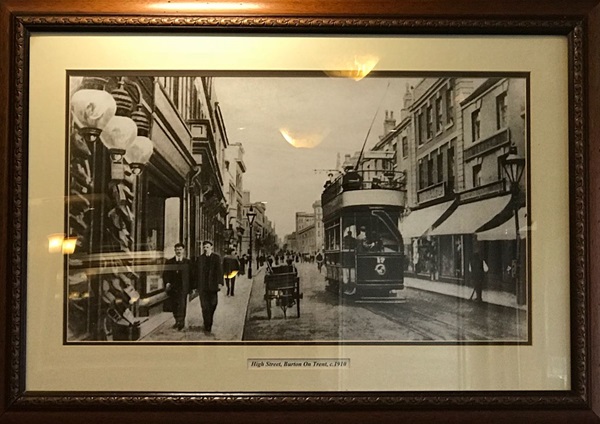
A photograph of Station Street, 1909.
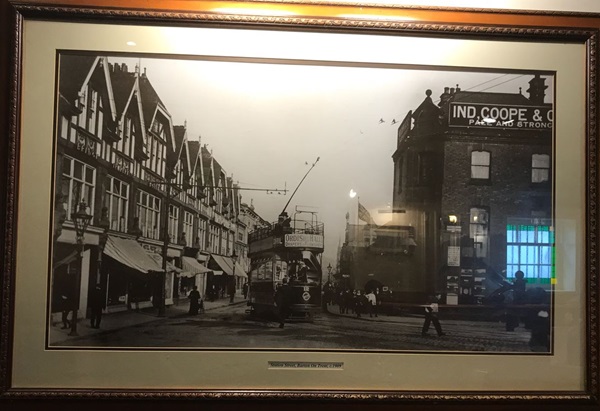
A photograph of Dixie Sidlings, 1910.
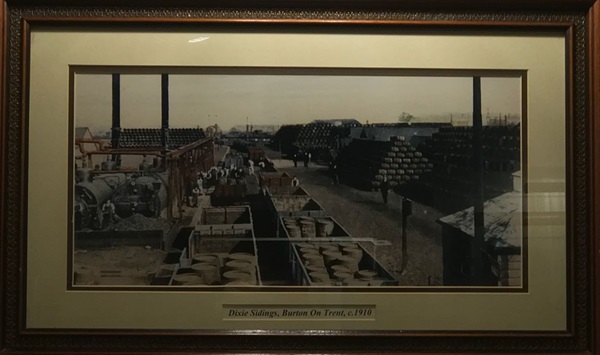
External photograph of the building – main entrance.
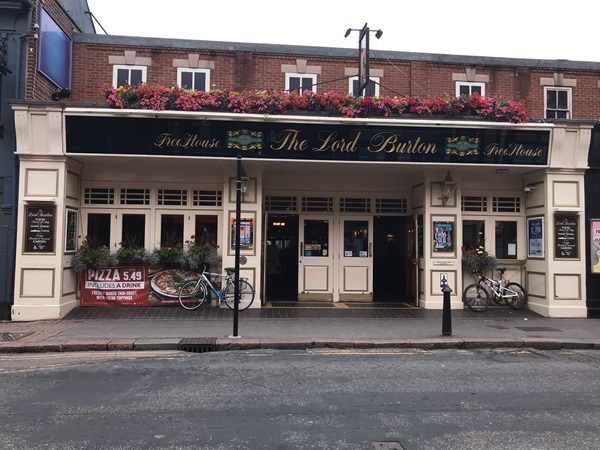
If you have information on the history of this pub, then we’d like you to share it with us. Please e-mail all information to: pubhistories@jdwetherspoon.co.uk